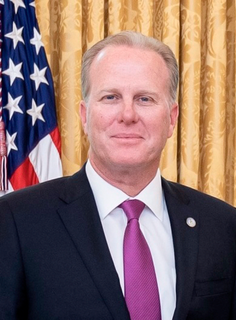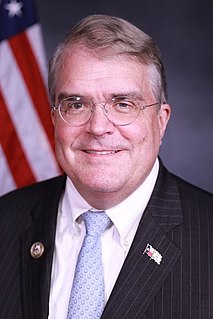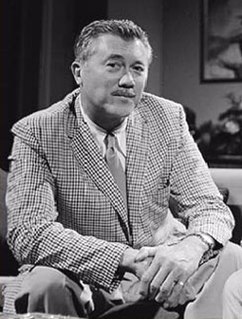A Quote by Kevin Faulconer
Too much of the national conversation about trade and the border comes from people who have not had the opportunity to step foot in border cities like San Diego.
Related Quotes
Most people who live at the border or are familiar with the border know that a Berlin-like wall stretching from San Diego to Brownsville is not necessary. And the costs would be prohibitive. And there are places on the border, such as the Arizona desert or the open terrain around the Big Bend in South Texas, where Mother Nature has created her own barrier that is not easily passable. Or if you do pass through it, you are easily detected.
There is San Diego - this retirement village, with its prim petticoat, that doesn't want to get too near the water. San Diego worries about all the turds washing up on the lovely, pristine beaches of La Jolla. San Diego wishes Mexico would have fewer babies. And San Diego, like the rest of America, is growing middle-aged.
Those of us that were raised in Tijuana have so much access to San Diego. I was crossing the border every day when I was a kid, and that back and forth has a huge influence on the cuisine. So the U.S. is coming down to Tijuana, Tijuana is going to San Diego. There's this great blending, a great exchange.
Of course, San Diego chooses not to regard the two cities as one. Talk about alter ego: Tijuana was created by the lust of San Diego. Everything that was illegal in San Diego was permitted in Tijuana. When boxing was illegal in San Diego, there were boxing matches in Tijuana; when gambling was illegal, there was always Tijuana.
Growing up, I didn't realize how unique it was to live on the border of the United States and Mexico. It wasn't until I started doing interviews with the press that I actually began to appreciate just how cool it was that I would cross the international border every single day from Tijuana into San Diego to go to school.
When you watch the way some of the commentators talk about this, it makes it seem as if people are crossing the border every second. How much money have we spent on the border? Why? And who's really exploiting whom?" And then he gets quiet. But I think just airing these out and having a face-to-face conversation about it helps both of us internalize what the conversation is really about. I don't think we have that in the public sphere.
Each sector of the border faces unique geographical, cultural and technological challenges that would be best addressed with a flexible, sector-by-sector approach that empowers the Border Patrol agents on the ground with the resources they need. What you need in San Diego is very different from what you need in Eagle Pass, Tex.
What we're doing is making sure that we have a safe and secure border region from San Diego all the way to Brownsville. And that means manpower, it means technology, it means infrastructure, it means interior enforcement. All, you know, kind of layered in appropriate ways, and making sure, like I said before, the border is safe and secure.
When it comes to immigration, I have actually put more money, under my administration, into border security than any other administration previously. We've got more security resources at the border - more National Guard, more border guards, you name it - than the previous administration. So we've ramped up significantly the issue of border security.































